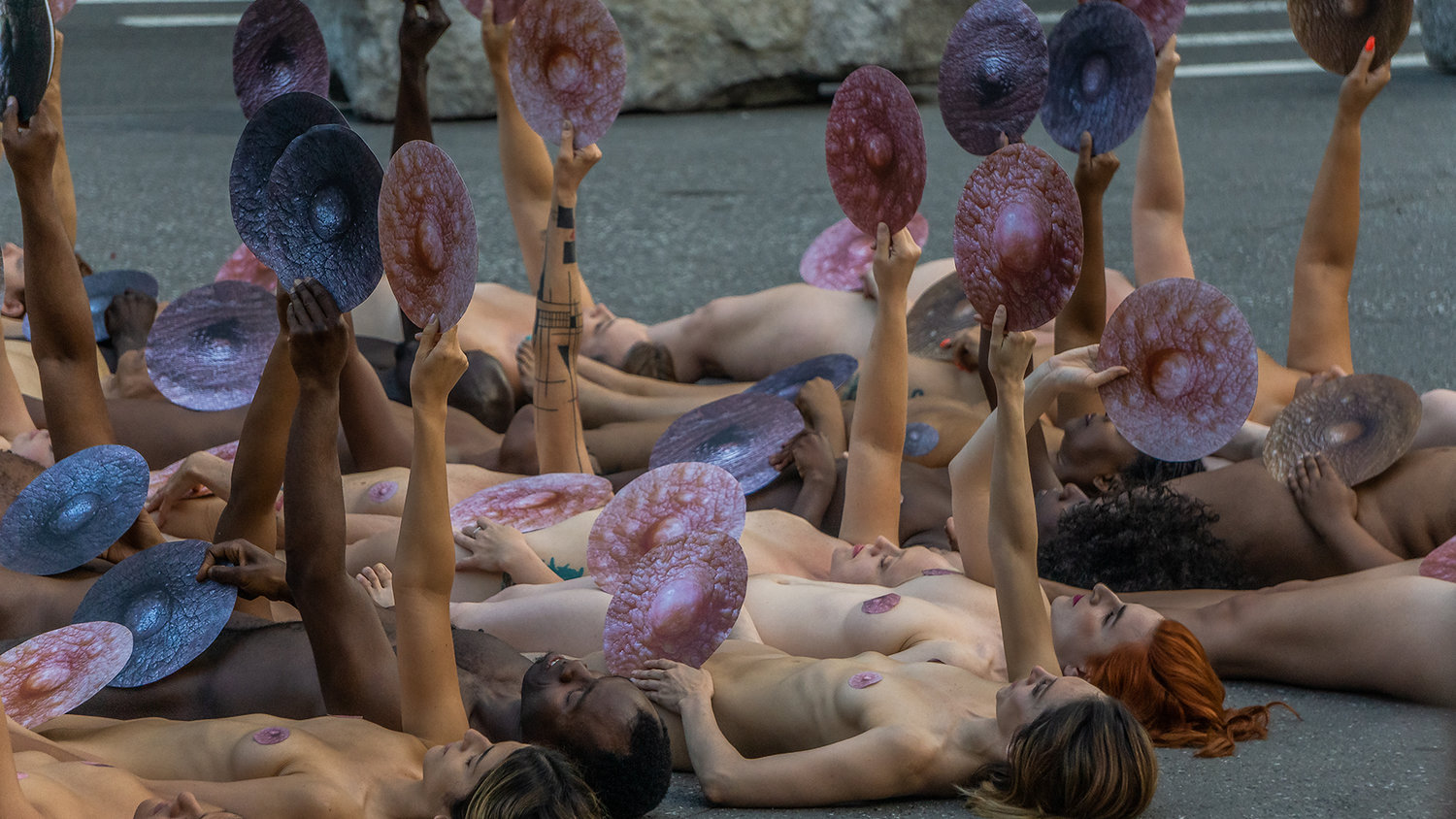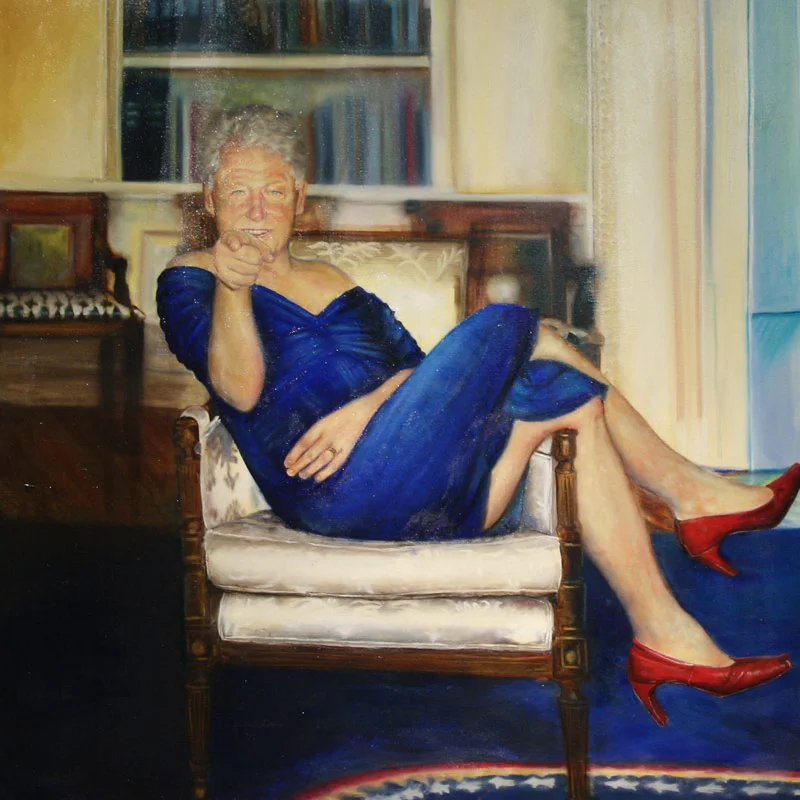This N' That: Keep In The Know With Photography News
Dan Lam, Getting Soft (2018). Courtesy of Artnet news
By Ashley Yu
A Matcha Café/Gallery on the Bowery Sued
Walking down the infamous Bowery in New York, you notice a ridiculously expensive matcha bar, Mamacha, sharing space with the ridiculously named The Hole Gallery. Yet beyond the Instagram-magnet façade and faux-hip atmosphere, the two entities are being sued for by Dallas-based artist Dan Lam, whose sculptures were displayed and sold in both spaces. The Hole and Mamacha failed to pay for Lam’s sculptures they sold during the 2018 exhibition, failing to return unsold ones, and damaging others.
In April 2018, Lam showed 60 of her neon foam and resin sculptures for the inauguration of Mamacha/The Hole. The sculptures were also sold on the Hole’s e-commerce website. However, Lam only received $6000 USD of the nearly $36,000 for the eight artworks sold, four damaged ones, and nine missing ones.
Unsurprising that a rich, bougie café/gallery on the Bowery would take advantage of emerging artists like Lam. Only giving Lam a sales report full of discrepancies, Mamacha has continually ignored the requests of Lam’s and her attorney. Meanwhile, to wash their hands of their own dirt, The Hole has claimed that there is no business affiliation with Mamacha, and that the latter is a tenant leasing space with the gallery. Lam was also never represented by the gallery.
Lam will be taking both Mamacha and The Hole to the New York Supreme Court, seeking the remaining balance for her artwork, punitive damages and attorney’s fees.
London Museum of Illustration. Courtesy of Hotelworld.com
Surprise, Surprise: London Art Galleries Still Pretty Sexist
In a report published by the Freeland Foundation, nearly 70 percent of artists represented by London’s top galleries are male, with little, almost insignificant changes in the dynamics of representation in the British art world. Despite women dominating the creative fields in universities and colleges, there has actually been a 1 percent decrease in the number of female artists being represented.
Even worse, of the artwork sold, 88 percent were artwork made by men. Although there are incredibly influential female gallerists and art collectors that comprises of 48 percent, they are not actively fighting against, and so are complicit with, the enduring inequality between male and female artists. This phenomenon is also prevalent at teaching institutions, where 63 percent of the staff are male.
Though representation in museums and non-commercial galleries have shifted for improved number of female artists, the prevailing fear of many upper-echelon figures in the British art world still believe that marriage, pregnancy and child-rearing will inevitably impede the careers of female artists, and so the commercial success of prominent galleries.
©Cid Roberts
Is Facebook Finally Freeing the Nipple?
After the astounding success of #WeTheNipple that took place outside of Facebook headquarters last week, activists announced that Facebook is willing to reevaluate their censorship guidelines towards artistic nudity on its platform and on Instagram, whom they own, to address the internal contradictions in banning images of female nipples unless it is to show breastfeeding and post-mastectomy results.
According to the National Coalition Against Censorship and photographer Spencer Tunick, Facebook and its shareholders hope to “discuss the issue of nude photographic art and the harm done to artists, provide insights to the challenges Facebook has faced in developing its nudity policies, and explore ideas of a path forward.” This is a ground-breaking policy for this social media giant after years of dissent. It was only during this April that Facebook slackened their stranglehold on nudity for galleries and museums.
Long has there been a debate regarding the selective censorship of female nipples engenders gender inequality in the treatment and acceptance of the female body while allowing the circulation of images of male nipples, as well as stifling artistic expression.
Ai-Da with her paintings. Photograph by Victor Frankowski.
Would You Buy Art Made By A Robot That Looks Like a Sex Doll?
With plush Kylie Jenner lips and luscious locks, Ai-Da is the name of an android, currently on exhibition “Unsecured Features” at Oxford, that can draw, sketch and paint. With already over $1M in sales, the female android is certainly one dubious step forward into the realm of A.I. art. Ai-Da, however, is not simply intelligent enough to create art, but it also eerily resembles a real-life, relatively attractive, female.
Directed by computer coding, Ai-Da is described as “the first ultra-realistic humanoid A.I. artist.” Gallerist Aiden Meller has repeatedly stressed the significance (again, a dubious one) of Ai-Da’s female appearance, supposedly to champion female representation. Yes, because real-life women is the equivalent to man-made android created out of a teenage-gamer-boy’s fantasy. Ai-Da is sophisticated enough to create drawings autonomously, but not quite intelligent enough to socialize. When interacting with visitors, Ai-Da’s answers are controlled by the exhibition curator Lucy Seal behind the scenes.
With cameras installed behind her blinking eyes, Ai-Da can scan images of the object or person. Her A.I. processes these visuals and send messages to her arms to create an abstract sketch, which will in turn be sent to other networks to generate an outline for sculptures and paintings. To create unique work, the process is deleted with each iteration to replicate “originality.” Her approximate turn-around is 45 minutes.
Courtesy of Pexels
O Big Brother: U.S. Government Asks For Instagram From Visa Applicants
In yet another anti-immigrant tirade sponsored by our beloved orange child in the Oval Office, the U.S. State Department is now requesting social media information for any Visa applicants, which will affect over 15 million people today. Though this policy was considered by the Obama administration, it was never fully implemented with visitors voluntarily supplying social media handles and in some cases, authorities are able to locate selected applicant's public online activity. However, there has been no explanation on what the information will be used for and the criteria of social media platforms that are deemed “acceptable” for Visa applications, other than the obvious anti-American statements and images of violence that hint at the potential threat of dangerous visitors. The policy is effective immediately and many see this as a deterrent for free speech on social media platforms, as well as a violation of privacy.
As President Trump continues the crackdown on foreigners entering the States, his administration has proposed an overhaul of the immigration system to search for demonstrated desire for “patriotic assimilation.” Horrifying? Yes. In increasing incidences of circumscribing the freedom of speech, a Yemeni journalist for Associated Press has recently been denied entry into the United States to receive her Pulitzer Prize while a negotiator for Palestinian rights was also rejected for a VISA, despite years of visitation.
The State Department requires any activity on social media platforms in the past five years, including Flickr, Instagram, Facebook and Youtube, and will, by proxy, obtain information of anyone’s close family and friends. In addition to social media handles, Visa applications are also requested to provide previous telephone numbers, email addresses, deportation status and family connections to terrorist organizations. Only diplomatic applicants and official visa types are exempted.












